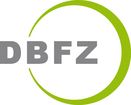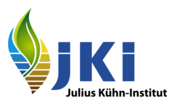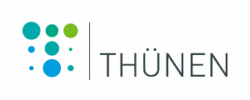Involved Institutes
A balanced, healthy and safe food diet, clear and understandable consumer information, a strong and sustainable agriculture, forestry and fishery sectors are important goals of the German Federal Ministry of Food and Agriculture (BMEL). At the same time, the BMEL advocates for animal welfare, for achieving food security for the global population, and for rural development.

Contact
Dr. Rainer Keicher
Unit 823
Digitalisation - Principles and coordination, data laboratory, bureaucracy reduction
Federal Ministry of Food and Agriculture (BMEL)
Wilhelmstraße 54, 10117 Berlin
Phone: 030 18529-4325
E-Mail

Contact
Matthias Filter
KIDA Centre Coordination
Head of Study Centre ‘Supply Chain Modelling and Artificial Intelligence’
The Federal Office of Consumer Protection and Food Safety (BVL) is responsible for issuing permits and approvals of plant protection products, veterinary drugs and genetically modified organisms in Germany. It takes on a comprehensive management tasks and coordinates cooperation in areas of food and feed safety between the Federal Government, the Federal States and the European Union at various levels.

Contact
Dr. rer. nat. Marco Selig
KIDA Centre Coordination
Working Group Leader Data Laboratory DBFZ
The central task of FLI is focused on farm animal health and welfare. This includes the prevention, diagnosis and control of animal diseases, as well as the improvement of animal feed nutrition and animal husbandry conditions. In addition, FLI has a task to conserve and use animal genetic resources.
The central task of Max Rubner Institute (MRI) is focused on consumer health protection research in the area of food and nutrition.
As a scientific federal research institute, in the responsibility area of the Federal Ministry of Food and Agriculture (BMEL), the MRI on a scientific basis consults the federal government in food and nutrition issues.
Thünen Institute focuses its work on research and policy advice in the fields of sustainable agriculture, sustainable development of rural areas, wood, forestry and fishery sectors. Monitoring activities - for example in forests and seas and model based long term predictions - for example in agricultural sector are the building blocks of its work.
![[Translate to English:] Logo des Bundesinsituts für Risikobewertung](/fileadmin/_processed_/6/1/csm_BfR_Logo_neu_Deutsch_2022.tif.219561_5d325c872b.jpg)





